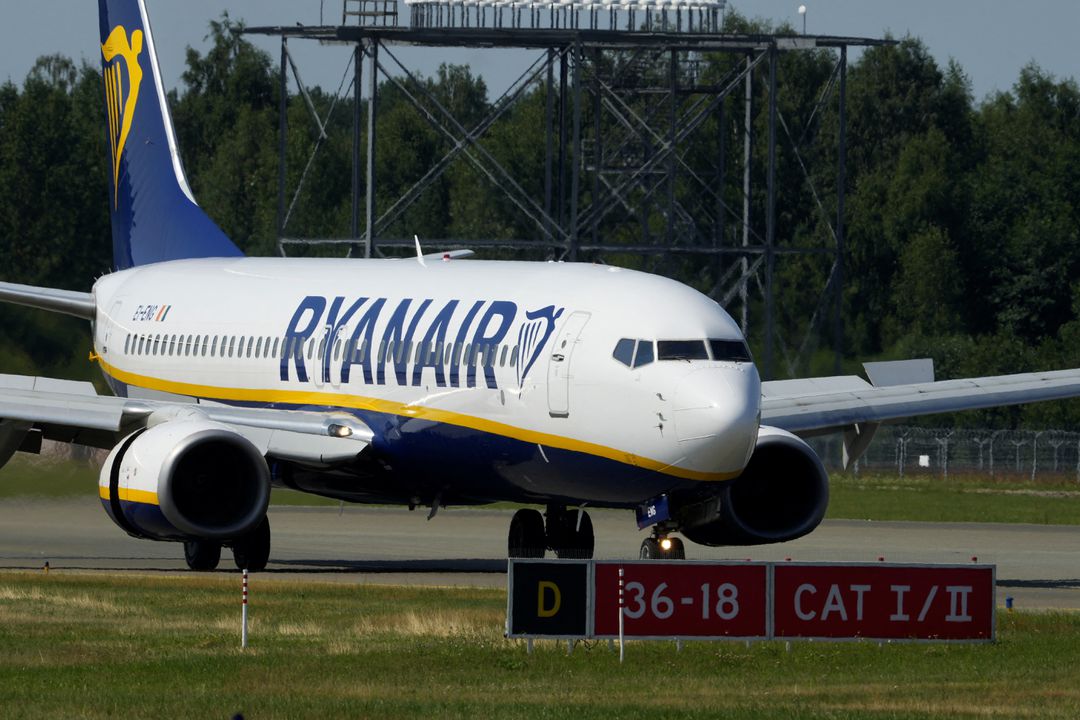Ryanair (RYA.I) reported six-month post-tax profit above expectations on Monday and nudged up its passenger traffic forecast after earlier than expected Boeing (BA.N) deliveries and strong first-half demand.
The airline, Europe’s largest by passenger numbers, said it cautiously expects to recover all of last year’s 7 per cent average fare decline in its financial year to March 31 but that it would need to stimulate prices “a bit” in November due to weaker demand.
Shares in the airline were 1.9 per cent lower by 0850 GMT.
Ryanair expects to fly 207 million passengers to end-March, up from a previous forecast of 206 million after it received 23 new MAX 8 aircraft from Boeing. Improved deliveries enabled it to add capacity for the current quarter.
The low-cost carrier said it is confident of receiving the six remaining MAX 8 aircraft from an order that had suffered long delays by February.
“For the first time in many years we will have a full fleet complement by the time we switch to the summer schedule,” Group Chief Executive Michael O’Leary said, crediting a “transformation” at Boeing in the last year.
FUEL HEDGING EXTENDED AT LOWER PRICES
Ryanair’s next order is for 150 of the new MAX 10 and with Boeing expecting to receive regulatory approval for the aircraft by mid-2026, according to O’Leary, Ryanair said on Monday it would begin to accelerate pilot recruitment in advance of the first deliveries due in early 2027.
Ryanair reported a net profit of 2.54 billion euros ($2.96 billion) for the six months to end-September, which is when it typically makes most of its profit due to the northern hemisphere’s busy summer holiday season.
That was up 42 per cent from 1.8 billion euros in the same period last year and ahead of a Ryanair poll of analysts that had expected 2.5 billion euros. Average fares grew by 13 per cent year-on-year.
Ryanair said forward bookings were slightly up year-on-year for this quarter, including Christmas. Analysts at JPMorgan said the “solid” outlook commentary should alleviate any concerns the market might have on winter demand for Ryanair amid market-wide capacity growth.
After previously hedging around 85 per cent of its fuel needs for the year to end-March at $76 per barrel, Ryanair said it took advantage of recent price dips to extend hedging for its 2027 fiscal year to cover 80 per cent of its needs at just under $67 a barrel.






Click here to change your cookie preferences